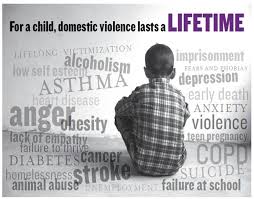Impact of Domestic Violence on Children
Impact of domestic violence on children extends far beyond the immediate household, often leading to long-term emotional, psychological, and developmental challenges.
Children exposed to domestic violence often suffer deep emotional wounds that can last a lifetime. Whether they witness abuse or experience it directly, the psychological toll can shape their development, relationships, and mental health well into adulthood.
Emotional Trauma: The Invisible Scars
Children who grow up in violent households often experience chronic stress, anxiety, and depression. According to pediatric psychologists, exposure to domestic violence can lead to:
- Post-traumatic stress disorder (PTSD): Flashbacks, nightmares, and hypervigilance are common symptoms.
- Low self-esteem and guilt: Many children blame themselves for the violence or feel powerless to stop it.
- Difficulty regulating emotions: Frequent exposure to conflict can impair a child’s ability to manage anger, sadness, or fear.
These emotional responses are not just temporary—they can persist into adolescence and adulthood, affecting every aspect of life.
Living in Fear: A Constant State of Alert
Children in abusive environments often live in a state of fear and unpredictability. This can result in:
- Sleep disturbances and nightmares
- Avoidance behaviors, such as withdrawing from social activities or school
- Hypervigilance, where the child is constantly on edge, anticipating danger
This fear can interfere with learning, concentration, and social development, making it harder for children to thrive in safe environments later on.
Long-Term Developmental Damage
The long-term effects of domestic violence on children can be profound:
- Cognitive delays: Chronic stress can impair brain development, affecting memory and learning.
- Behavioral problems: Children may exhibit aggression, defiance, or withdrawal.
- Relationship challenges: Many struggle to form healthy attachments and may replicate abusive patterns in their own relationships.
Studies show that children who witness domestic violence are more likely to become victims or perpetrators of abuse in adulthood, perpetuating a cycle of trauma.
Breaking the Cycle: Support and Recovery
Recovery is possible—but it requires early intervention and consistent support. Key steps include:
- Therapeutic counseling: Trauma-informed therapy can help children process their experiences and build resilience.
- Safe environments: Removing children from violent settings is critical for healing.
- Parental support: Non-abusive caregivers play a vital role in helping children feel secure and valued.
Community programs, schools, and healthcare providers must work together to identify at-risk children and connect them with resources.
Domestic violence doesn’t just harm the immediate victim—it leaves lasting emotional and psychological damage on children who witness or experience it. We can assist end the pattern and offer kids the opportunity to recover and flourish by being aware of the effects and supporting trauma-informed treatment.
FAQs: Impact of Domestic Violence on Children
1. How does domestic violence affect children emotionally?
Children exposed to domestic violence often experience anxiety, depression, guilt, and low self-esteem. These emotional effects can persist into adulthood and influence their relationships and mental health.
2. Can children develop PTSD from witnessing domestic violence?
Yes. Many children develop symptoms of post-traumatic stress disorder (PTSD), including nightmares, flashbacks, and hypervigilance, especially if the violence is frequent or severe.
3. Do children have to be physically abused to be affected?
No. Even witnessing violence between caregivers or living in a tense, unpredictable environment can cause significant psychological harm.
4. What are the behavioral signs that a child may be affected?
Common signs include aggression, withdrawal, difficulty concentrating, sleep disturbances, and sudden changes in school performance or social interactions.
5. How does domestic violence impact a child’s development?
Chronic exposure to violence can impair brain development, delay cognitive growth, and hinder emotional regulation, affecting learning and behavior.
6. Can domestic violence affect a child’s future relationships?
Yes. Children may struggle with trust, attachment, and conflict resolution, and are at higher risk of entering abusive relationships themselves.
7. Is recovery possible for children exposed to domestic violence?
Absolutely. With early intervention, trauma-informed therapy, and a safe, supportive environment, children can heal and build resilience.
8. What role do schools and communities play in helping affected children?
Educators, counselors, and community programs can identify signs of trauma, provide support, and connect families with resources for safety and recovery.
9. What should caregivers do if they suspect a child is affected?
Seek professional help from therapists, pediatricians, or child advocacy organizations. Creating a safe and stable environment is crucial.
10. Are there resources available for children and families?
Yes. Many organizations offer counseling, shelter, legal aid, and support services. Local domestic violence hotlines and child welfare agencies can provide guidance.


Leave a Reply